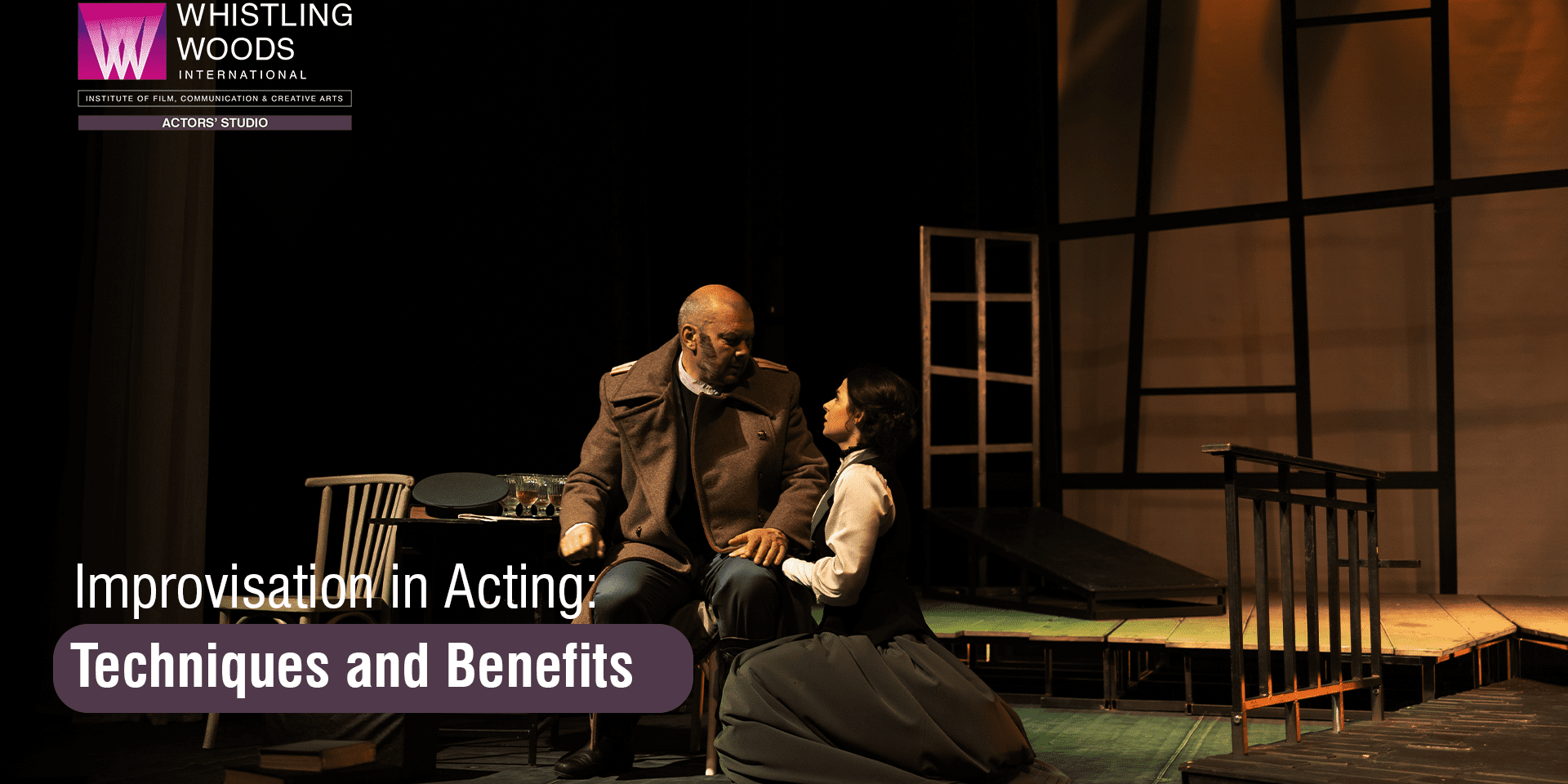Improvisation is a valuable tool and a magical ingredient for any actor in the world of acting. It enables an actor to fully engage with the character, transforming a normal performance into an unforgettable one.
Acting is not just about mastering key acting techniques, mere reading, or memorising a script. It’s about making spot-on decisions and requires the ability to think on your feet. While some are naturally good at it, others may need to learn these techniques to elevate their performances.
No matter how good a person is at improvising, continuing to practice techniques and tips can significantly enhance performance and add depth to the character. Let’s explore the benefits and techniques of improvisation here:
The Art of Acting Improvisation and Its Benefits:
Improvisation in acting is the refined craft of making things up on the spot, depending on one’s wit, without rehearsal or a script. It is “an act on its own” and is often considered a fundamental part of dramatic acting that can appear in different settings.
An actor should know when to implement improvisation during a performance, as it is quite helpful when something unexpected happens or when characters or actors forget the dialogues or lines. Acting improvisation is quite beneficial for actors, as
Boosts Confidence:
Improvisation makes an act more open to experimentation with characters, dialogue, and body language, which can help overcome the fear of judgement and failure. It is an art that pushes actors to explore different types of characters and make bolder decisions, extending their creative boundaries.
Creativity:
By using improv acting techniques, any character or scene can become a breeding ground for creativity. With the right techniques, one can learn how to respond in the moment and harness natural creativity to do justice to a character or scene without the need for a safety net or a script.
A Solid Foundation:
As one enrols in an acting school in India for improvisation classes, they gain a solid foundation in acting fundamentals, such as developing strong characters, embracing emotions, and establishing clear objectives that help create nuanced and rich performances in any given situation, scene, or setting.
Versatility and Skills:
One element of improvisational acting is that it is unpredictable, which teaches an actor to adopt flexibility and strengthen adaptability and spontaneity. It relies heavily on active listening, enabling an actor to create a cohesive narrative and an organic performance. Improvisation enhances these skills in an actor.
Techniques and Tips to Improve Acting:
All improv acting techniques and tips are focused on one thing: enhancing performances with on-the-spot instinctual responses to better connect with the character and audience. Here are a few techniques that can help add depth to the performance:
Working on Object and Emotion:
Emotions play a crucial role in developing a connection with the audience while performing any scene. Improvisation requires an actor to have a wide emotional range. Delivering the emotion as it is being expressed can help shift emotions and add authenticity to the performance.
One can also mime an object to add realism to the scene and support the dialogue while performing it. This adds depth to the scene and enhances storytelling.
The “Yes…and… Rule:
A golden rule commonly taught in almost every well-constructed acting course in India, “Yes..and…” is a rule that helps the improv act keep going.
The rule focuses on building and agreeing to whatever is offered by your partner. It accelerates creativity, expands on that line of thinking, and keeps the scene moving forward.
Spontaneity and creativity:
Acting improvisation is about creativity, skill, and creating characters on the spot. It involves remaining calm in the face of the unknown and gaining creative insight to add elements to the performance.
It can be a peculiar walk, a unique perspective of the character, or a sudden change in tone that you can add to a scene with prompt thinking.
Active Listening and Narration:
One of the most important tips for improving acting is to learn the art of active listening. Be in the moment and catch the subtle cues from your partner to make a scene memorable.
Channel these cues into building a real-time narrative to make your scene more engaging and coherent. Understand the intent behind what your partner is saying and weave responses to keep the scene moving.
Learn to Craft “Iconic” Scenes with Whistling Woods International’s Acting Programmes:
Become an expert at improvisation, learn key acting skills and techniques, and develop a whole new understanding of the world of acting with Whistling Woods International, the top Acting school in India.
Hone your improv skills under the guidance of seasoned professionals and industry experts. Add depth to your acting, strengthen your character development skills, infuse spontaneity, develop character relationships, and improve your acting skills with our acting programmes.
Become a pro at embracing the unknown by learning and effectively applying the craft of improvisation to make every performance unforgettable.
At WWI, we offer a wide range of acting courses, including degrees and diplomas in acting, to enhance your skills and make your presence count in the industry.
Pursue the art of acting, hone your drama skills, and learn the art of improv from experts by enrolling in our exceptional Acting course in India.

